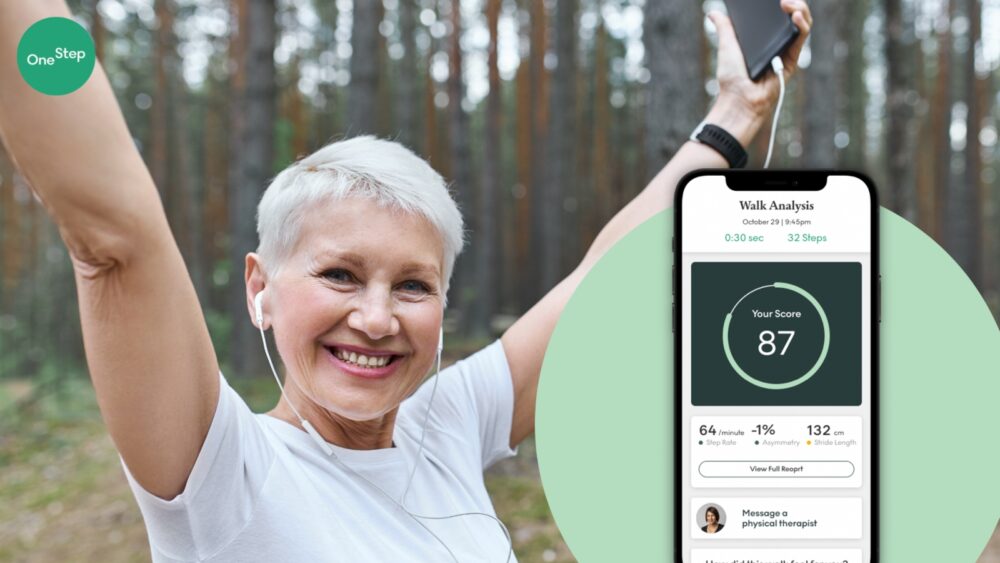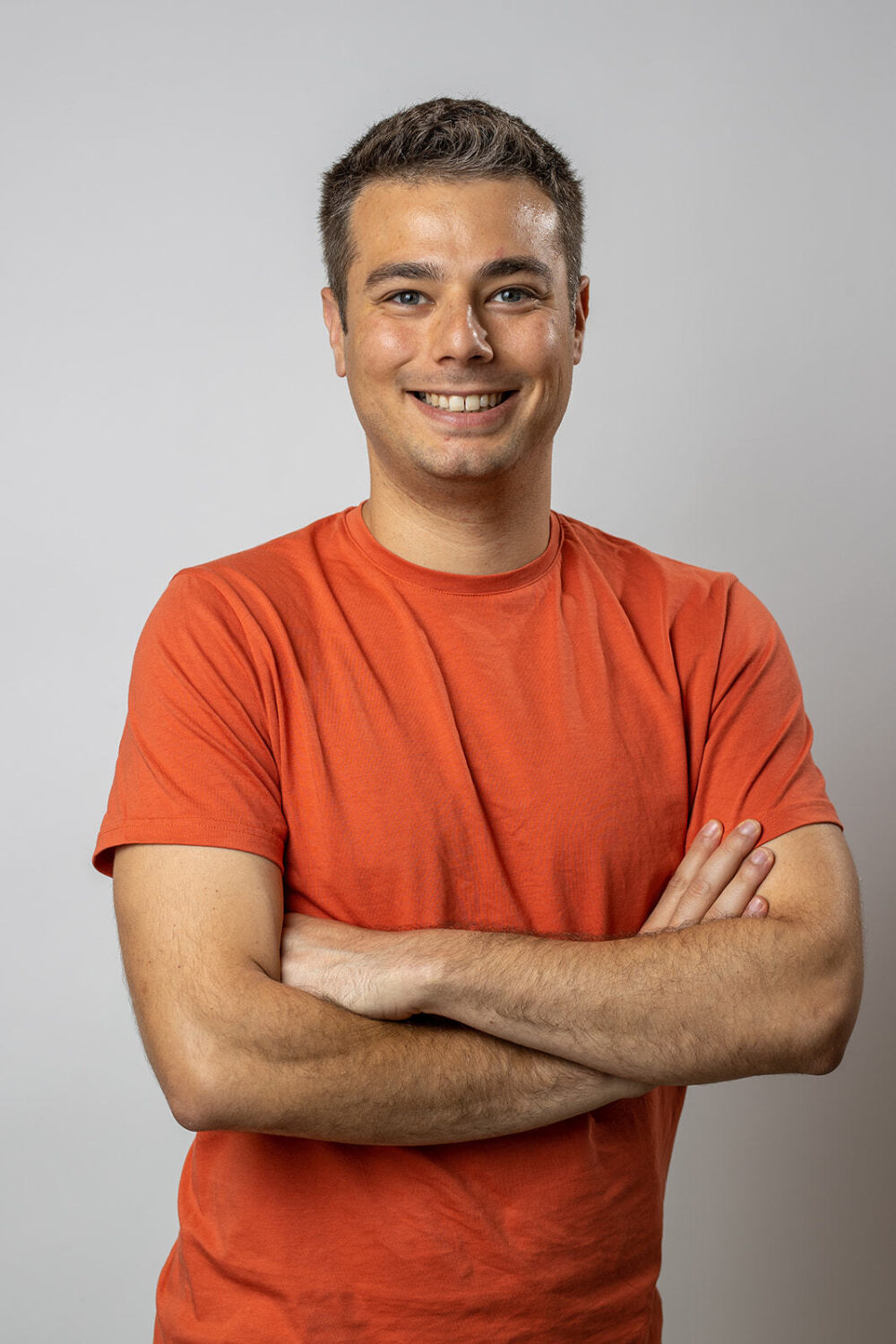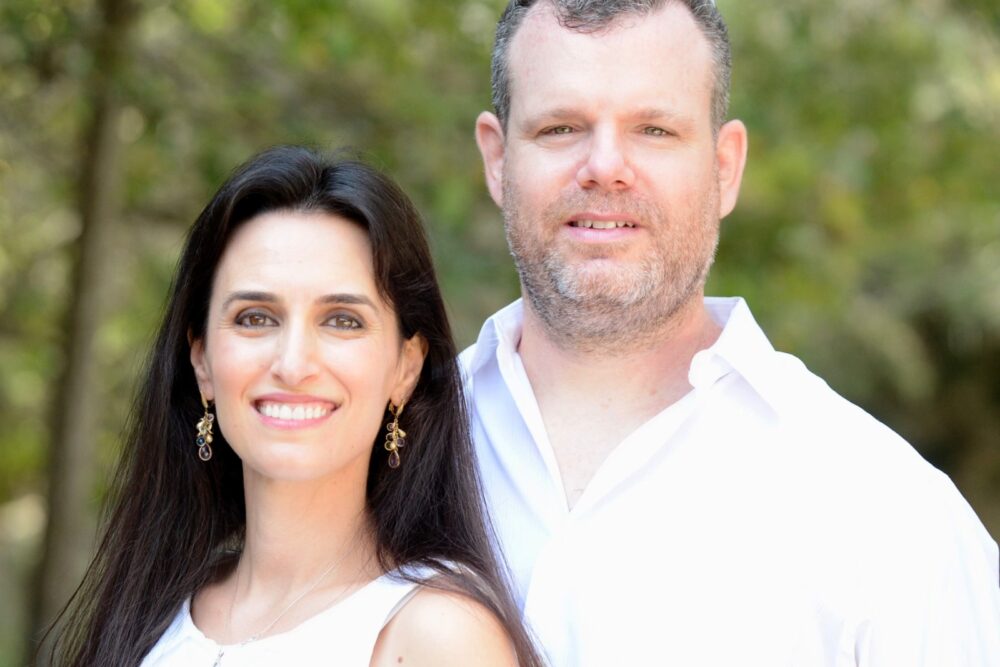Gait, or the way you walk, affects not only your stability but also the functional strength of your entire body. If the biomechanics of your gait is off, you’re at risk of falling as well as muscle strains.
These problems are becoming more prevalent as baby boomers age and develop gait disorders, cognitive impairment, dementia and other neurological diseases that impact mobility and can lead to disabling (and even fatal) falls.
It’s estimated that about 28 percent of adults 65 and older fall at least once a year.
Fortunately, most gait abnormalities can be improved with physical therapy, including those caused by strokes or accidents.
Here are two Israeli companies making gait analysis, training and rehab more effective for patients and practitioners.
The four-year-old company’s digital therapeutic gait rehabilitation and fall prevention solution can be added to any existing treadmill. It applies virtual reality and computer vision to the process of improving walking and reducing falls.
GaitBetter CEO and cofounder Hilik Harari explains that users watch the movement of their feet on a screen mounted in front of the treadmill as they navigate a personalized cognitively challenging obstacle course simulating the attention, memory and decision-making issues people face while walking.
“A typical fall happens when an older adult is walking in the street and people and cars are going by, and maybe there’s a dog barking and a crack in the sidewalk. Your brain is processing all of this, and you run out of capacity,” Harari says.
“We see on fMRI scans that our program actually improves brain efficiency in areas responsible for gait. That means gait becomes more natural compared to control groups, where the brain is working hard to overcome distractions that make us fall.”
About 20 peer-reviewed studies have demonstrated GaitBetter’s benefits. The most recent study, from Israel’s Maccabi Health Services, showed that 15 GaitBetter sessions reduced falls in 200 at-risk older adults by 70 percent. The technology currently is in use at 70 Israeli HMO clinics.
Since launching in the second half of 2021 in the United States, GaitBetter has been installed at nearly a dozen facilities (including the National Rehabilitation Hospital in Washington, DC, and Rusk Rehabilitation at NYU Langone Health in New York) and won the judges’ choice award at the AARP Innovation Labs’ Fun at Any Age Challenge last March.
The core technology was licensed from Tel Aviv Sourasky Medical Center’s Center for the Study of Movement Cognition and Mobility after a groundbreaking multi-country study published in The Lancet proved treadmill training plus VR reduced fall rates compared with treadmill training alone, by strengthening the link between walking ability and executive functions such as short-term memory and decision-making.
This digital physical therapy platform provides comprehensive gait analysis using only smartphone sensors, giving a detailed assessment of walking and overall mobility without wearables or external sensors.
Just three years old and already seeing millions of dollars in revenue, OneStep is available in two modes: as a 24/7 “gait lab” technology to help medical device companies assess and optimize their gait-training devices; and as a technology enabling physical therapists (PTs) to communicate and provide effective treatment to patients 24/7.
“We sell the physical therapy solution through leading clinics in the US, and we have our own contract PTs that use it. We are treating thousands of patients through both channels,” OneStep CEO and cofounder Tomer Shussman tells ISRAEL21c.

PTs use OneStep in their treatment regimen for almost any lower body condition: knee or hip replacement, strokes, lower back injuries, sciatica and sports injuries like runner’s knee. The company is now incorporating range-of-motion measurements for upper-body injuries as well.

Shussman and three buddies founded the company three years ago, after finishing their service in the Talpiot military-academic technology unit for exceptional math and science students.
A physicist in training, Shussman had developed expertise in cameras and sensors; his cofounders worked in data analysis and software development.
“We saw what smartphone sensors can be used for in the context of cybersecurity and were kind of surprised that these sensors weren’t being used more commonly to see whether a patient is healthy or at risk,” he says.
“Our initial idea was to detect strokes in real time from 24/7 continuous analysis of gait pattern. We developed the gait analysis technology and began clinical trials with stroke and Alzheimer’s patients, which we are still doing. But we saw that it would take many years to get regulatory approval.”

Meanwhile, at the beginning of the coronavirus pandemic, Israeli PTs approached OneStep’s founders seeking clinical data solutions for doing remote physical therapy.
“And we realized there is a huge gap we could fill with our gait technology,” he says.
What differentiates OneStep from other remote PT solutions is that the user needs nothing more than a smartphone nearby while doing the prescribed exercises. It can be used in a totally passive mode or in a more active mode.
“Rather than sending you wearable sensors, we wanted to use the sensors already out there,” says Shussman.
“Another differentiator is that we are focused on outcomes. Many camera-based solutions measure exercise quality; we wanted to measure actual gait, which is hard to do with a camera.”
Shussman says he and his cofounders “could have gone into cybersecurity, but we chose not to. We founded OneStep to do good.”
Abigail Klein Leichman is a writer and associate editor at ISRAEL21c. Prior to moving to Israel in 2007, she was a specialty writer and copy editor at a major daily newspaper in New Jersey and has freelanced for a variety of newspapers and periodicals since 1984.
First published on:Israel21c
The copyright belongs to Israel21c and the author.






